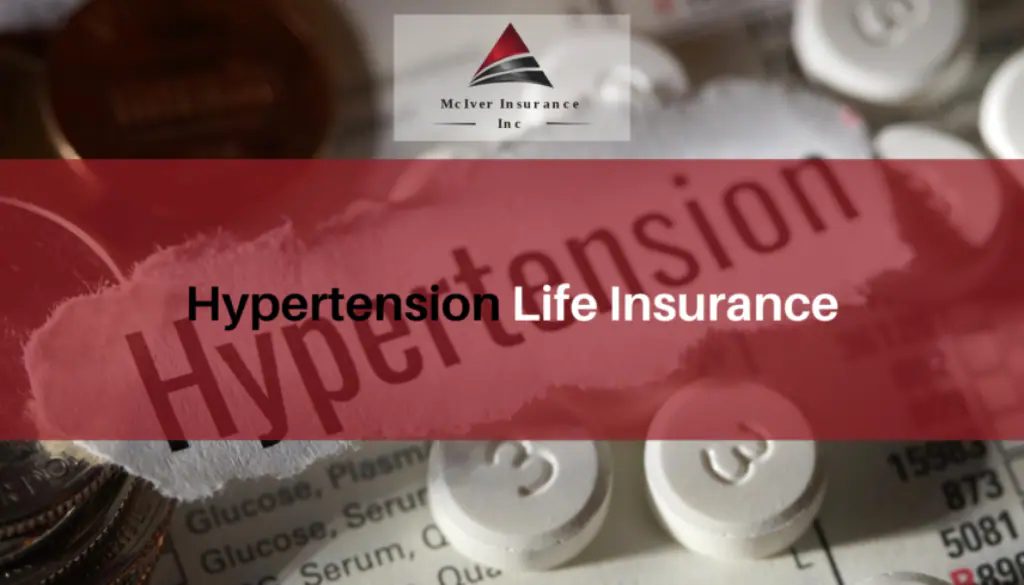Hypertension Life Insurance
Table of Contents
Key Takeaways
- Hypertension significantly affects life insurance premiums and coverage eligibility.
- The control and management of hypertension can influence life insurance terms.
- Hypertension influences the rates and payouts of life insurance claims.
Hypertension or high blood pressure is one of the most common chronic conditions in Canada, affecting nearly a quarter of adults aged 20 to 79.
Having hypertension makes an individual more susceptible to heart disease and stroke, the second leading cause of death in Canada.
But does that mean you can’t get life insurance with hypertension?
No, not at all. You are still eligible for life insurance if you have been diagnosed with hypertension. However, the severity of your condition and how long you have had it can impact premium rates and coverage terms.
Let’s explore how hypertension impacts life insurance underwriting, what life insurance options exist, and how managing your blood pressure can help lower premiums.
Impact of Hypertension on Life Insurance Premiums
What is considered hypertension by insurance providers in Canada?
Blood pressure readings of 130/80 mmHg or higher qualify as hypertension. But readings alone don’t reveal the full picture. To determine risk level, insurers or underwriters consider various factors such as:
- Age at which you were diagnosed
- How severe your blood pressure is (Stage 1 vs. Stage 2 hypertension)
- What medications are you taking and how well they’re working
- Other conditions like diabetes, high cholesterol, or obesity
- Any other complications impacting hypertension
If you have, for example, stage 1 hypertension, and you can prove it is well-managed with meds and lifestyle changes, and you don’t have other major health concerns, the impact on premiums can be minimal.
On the contrary, if you have stage 2 hypertension and you are having difficulty managing it, the impact on premiums may be significant. In some cases, applications can be denied altogether.
Variation in Policy Terms
It is important to note that insurance providers don’t all assess risk the same way. Some might put more weight on how long you’ve had hypertension or whether you’ve had complications.
It pays to shop around or work with a local and trusted broker who can find insurance companies more open to covering individuals living with chronic conditions.
Options for High-Risk Applicants
If your hypertension is considered high-risk, you might still qualify for:
- Simplified Issue Life Insurance: No medical exam, just a health questionnaire.
- Guaranteed Issue Life Insurance: No health questions, but lower coverage and higher premiums.
These are good options if you’ve been denied traditional policies or don’t want the hassle of a medical exam.
Hypertension Management and Its Effect on Insurance Policies
Being diagnosed with hypertension is more common than you would think.
Many Canadians think that if they have hypertension, they won’t get favourable terms for life insurance.
That isn’t true.
Having hypertension isn’t a deal breaker, but the way you manage it can be.
Blood Pressure Control
Insurance companies will look more favourably at applicants who have their blood pressure under control and can provide records of blood pressure readings, medication intake, dietary plans, exercise regimen, lifestyle choices, and frequency of routine checkups.
According to Hypertension Canada, changes in lifestyle and diet can help drop your blood pressure by as much as 10 mmHg. That is as much as going from stage 2 to stage 1 hypertension, significantly changing how an insurer views your risk level.
Healthcare Access
Having regular doctor appointments can also make a big difference. Insurers want to see that your hypertension isn’t just diagnosed, but managed through proper medication and expert advice.
Technology and Hypertension Management
Things like wearable blood pressure monitors and telehealth check-ins are becoming more common, and some insurers are starting to factor that into how they assess risk. If you’re tracking your BP, diet, or overall health with an app, mention that in your application. It can help strengthen your case as it shows initiative and proactive care.
Legal and Regulatory Aspects of Insurance with Hypertension
Disclosure Requirements
You’ve got to be honest on your application. Failing to mention a hypertension diagnosis, even if you think it’s no big deal, can lead to denied claims or cancellation.
Share your blood pressure readings, medication history, and whether you’ve had related complications. The more detailed your application is, the better your chances for acceptance and competitive terms.
Insurance Denials and Appeals
If you’ve been turned down for life insurance because of hypertension, don’t be disheartened. You can always request a written explanation from the insurer or work with a broker to file an appeal or look for a better match. You can also treat the denial as motivation to continue to improve your health, and if things go well, reapply in 6–12 months.
Data Protection and Privacy
Your health info is protected under Canadian privacy laws. Life insurance companies must get your consent before collecting medical data, and they’re expected to keep it confidential and secure.
The Financial Impact of Hypertension on Policyholders
Cost Implications
Hypertension can make life insurance more expensive, especially if it’s not controlled. That said, people with mild or well-managed hypertension might only pay slightly more than average.
Comparison of Premiums
Let’s say a healthy non-smoker in Nova Scotia pays about $30/month for a $250,000 term policy. Someone with moderate hypertension might pay closer to $45–$60/month, depending on their age and other health factors.
Economic Benefits of Managing Hypertension
Managing your blood pressure can lead to long-term savings. Not just in premiums but also in medical expenses.
Get Insured Today with McIver Insurance Inc.
Having hypertension can make securing life insurance challenging, but it is by no means a dealbreaker. What truly matters is how well you manage it.
Keeping your blood pressure in check, going to your doctor regularly, and being honest when applying can help you land decent coverage at a fair price.
At McIver Insurance Inc., we’re used to helping Nova Scotians navigate tricky medical histories. As a trusted and highly reputable brokerage firm, we always put you first and will do what it takes to help you find the protection you are searching for.
Book a call or request a free quote today!
Frequently Asked Questions (FAQ)
Q) What should I disclose about my hypertension when applying for life insurance?
Everything. When you were diagnosed, what meds do you take, your latest blood pressure readings, and any related health problems like diabetes, sleep apnea, heart disease, etc..
Q) How can I improve my life insurance rates if I have hypertension?
Consistency is key. Keep up with medication, go for regular checkups, improve your diet and exercise habits, and avoid drinking and smoking. If your BP improves over time, you can reapply for a better rate.
Q) What are the best life insurance options for someone with hypertension?
That depends on your health and age, but simplified issues or term life policies tend to be more forgiving and are likely going to be your best bet.
Q) How does hypertension affect life insurance claims and payouts?
As long as you disclosed it during your application, having hypertension won’t affect your payout. The trouble only comes if it wasn’t mentioned and the insurer finds out during a claim investigation.



